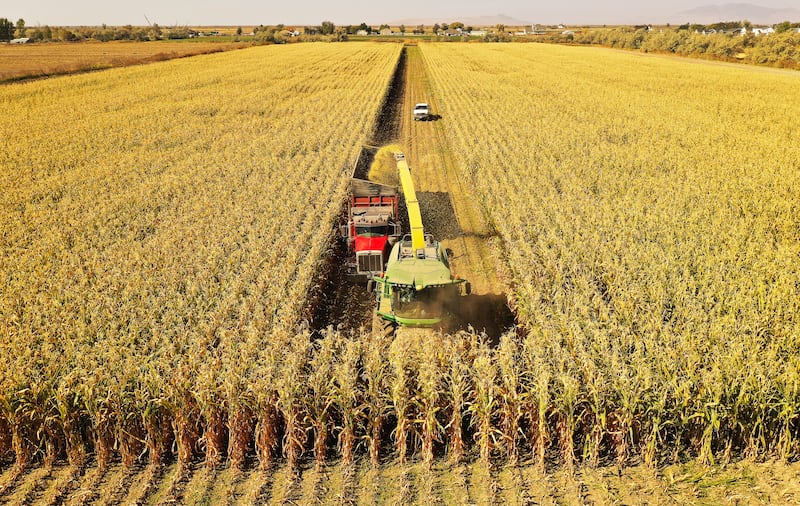Animal feeds may not be everyday fodder for international relations, but a pilot project coordinated by Utah State University in the 1970s with the United Nations Food and Agriculture Organization, a university in Germany and the International Livestock Centre for Africa, did just that.
Lorin E. Harris and Leonard C. Kearl of USU described it as an “attempt to establish through international cooperation a world data bank on the nutritive value and use of feedstuffs.” This is a venture emblematic of the remarks of Gérald Caussé, presiding bishop of The Church of Jesus Christ of Latter-day Saints, at the 2019 United Nations civil society conference in Salt Lake City: “Together we seek to reach across barriers and boundaries in the great work of creating a world in which we include, sustain, serve, and, more importantly, love one another.”
Reading about USU’s pioneering work a half century later, the clunky computer of their time now a snug mitten in the palm of my hand, I realized yet again how scholarship and imagination — and patient research — can further the core purpose of the United Nations, “the dignity and worth of the human person,” just as surely as agreements, arrangements and accommodations between nations can.
Then-Chief Judge Bruce Jenkins of the U.S. Utah Court, spoke on the organization’s 45th anniversary, in 1990, of “the bedrock human values” the United Nations symbolizes and the “quest for the peaceful enjoyment of such values in full measure by all humanity … people whose kinship of species and kinship of good will transcend the artificial political boundaries of nations.”
Artificial or not, boundaries did limit much possible global action.
Countries were loath to let matters they saw as internal to their sovereignty admit international interest or accountability. But then, 10 years ago, they assembled in Rio de Janeiro and agreed to venture beyond their domestic borders and move collectively forward to that “kinship of good” through agreed sustainable development goals that united nations in the manner the charter had intended them to be.
Defining the goals brought together governments, civil society activists and the global community of scholarship; it is representatives of this last sector who will gather in Orem this October for Utah Valley University’s first international academic conference on the goals:“Why it Matters.” The title is summed up from the question posed by UVU’s chief international officer, Dr. Baldomero Lago, “why do these goals matter? Why do they matter to all of us?”
Universality, perhaps. Their relevance to all regions and peoples of the world, each goal’s relevance and dependence on every other and the assurance that when so much of our lives are lived in an increasingly vulnerable, often abbreviated, present tense, the future can still be crafted with the willingness and wisdom of our immediate times. And, yes, education — the one bond that will unite participants, physical and virtual, at the conference which will include a large youth presence in addition to scholars and practitioners.
The role of education, in a sense, brings the United Nations back to the feeds and farmsteads of Utah, where these thoughts began. On May 19, 1945, as delegates from 51 countries worked in San Francisco to draft the Charter of the United Nations, the president of the Utah State Farm Bureau sent a letter to the Secretary-General of the conference protesting that while the draft document made mention of “culture,” there was no reference to “education.”
“We hold education as important to the well-being of the people of the world as we do food,” George L. Hobson wrote.
On May 31, the Secretary-General, Alger Hiss (yes, that Alger Hiss) replied:
“I am glad to be able to inform you that steps have been taken to make special reference to education in the proposed charter.” As it turned out, there was more than a single reference, including one on international educational cooperation, so prescient of what we will see at UVU in October and so emblematic of the green coaxed in distant soil from a seed nurtured half a world away, a seed whose promise shows why it matters.
Ramu Damodaran is Senior Fellow at the Centre for Social and Economic Progress, India, and served as the first Chief of the United Nations Academic Impact initiative (2010-2021).

